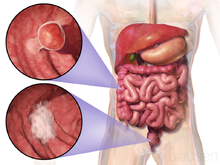Cancer Digest – Aug. 26, 2015 – Scientists have developed a blood test for breast cancer able to identify which patients will suffer a relapse after treatment, months before tumors are visible on hospital scans.
Researchers at The Institute of Cancer Research (ICR), London, and The Royal Marsden NHS Foundation Trust took tumor and blood samples from 55 breast cancer patients with early-stage disease who had received chemotherapy followed by surgery, and who had potentially been cured of their disease.



